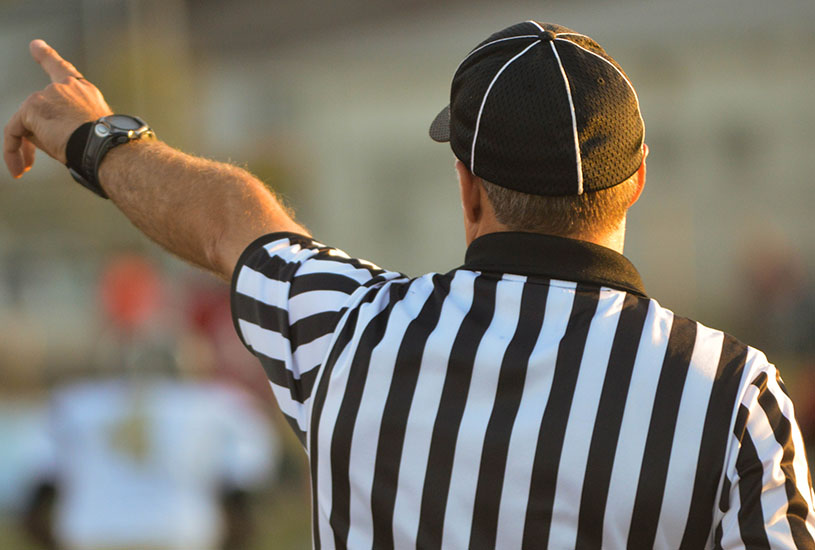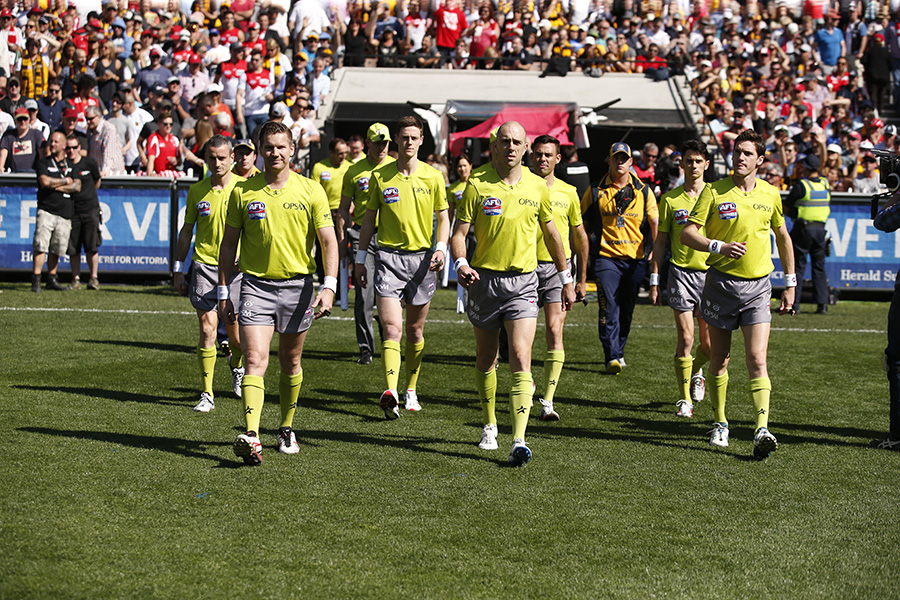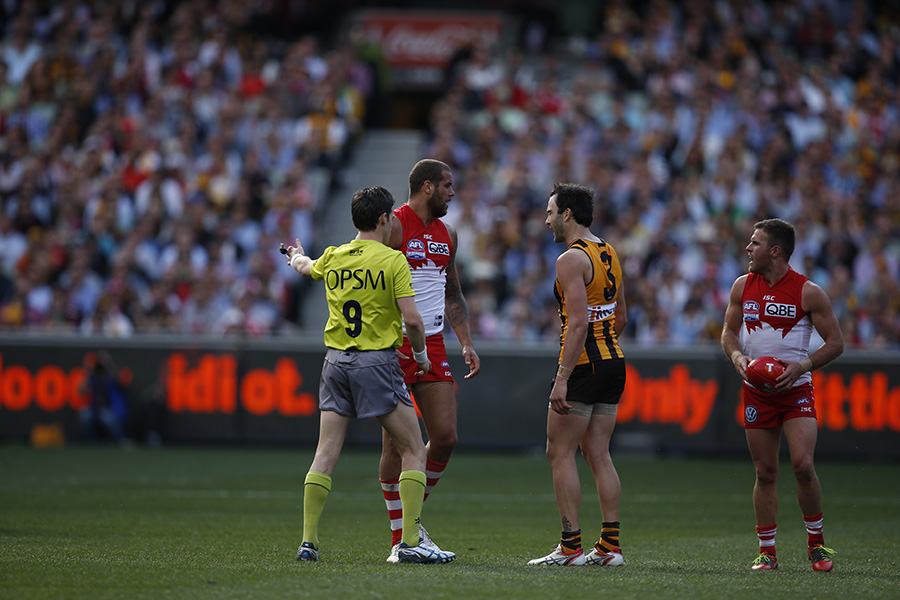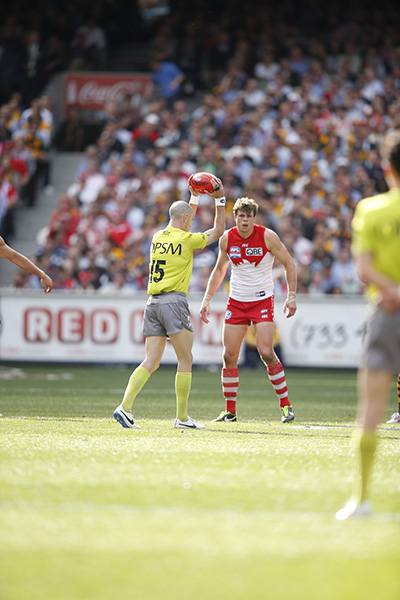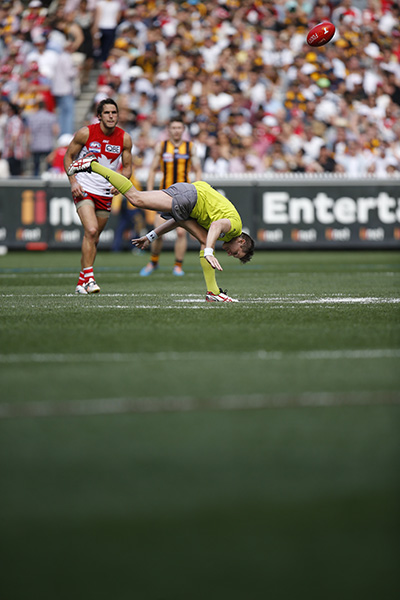A Deakin honours researcher has found that AFL umpires make the correct decision most of the time.
Some Australian Football League fans might like to blame the umpires when their team loses a game, but a Deakin University sport science student has found that umpires are indeed pros in their decision making.
For his honours research, Sean Corrigan investigated whether match characteristics and elite level umpiring experience affect the decision-making performance of AFL umpires.
He looked at all 6839 decisions made by the 32 AFL field umpires over the course of the 2014 season, analysing the influence of umpire experience, home-ground advantage, time in the match, location on the field, and score difference at the time of the decision.
“The umpires were not found to show opposition bias or to add to home ground advantage, or be affected by attendance numbers, the length of the game, or the moment in the match when the decision is made,” he said.
Mr Corrigan found that of the free kicks awarded, umpires get it right 92 per cent of the time.
However, this figure changes when you consider potential free kicks that are not awarded. In this case, and from a possible 8001 decisions, 78 per cent of free kick decisions were right, seven per cent were incorrect and 15 per cent were missed or not paid – an overall error rate of 22 per cent.
Ms Briana Harvey, the AFL Umpire High Performance Analyst, said Mr Corrigan’s analysis of the data confirmed the AFL’s umpire coaching strategies.
“Sean’s research has been really valuable for us. It shows our umpires are doing a great job and where we should focus our energies,” Ms Harvey said.
For coaching and training purposes, all umpire decisions are classified into correct, incorrect and missed categories at the end of each match by an AFL expert panel of four retired, highly experienced umpires.
Using this data, Sean also found that higher elite level umpiring experience and a large score differential at the time of the decision resulted in improved decision-making accuracy. This suggests that it is more difficult to make the correct decision when the scores are close and the game is in the balance, and closely parallels player performance in these circumstances and better decision-making in more senior players.
An avid AFL fan and keen footballer himself, Mr Corrigan completed his Bachelor of Exercise and Sport Science work placement with the AFL Umpire Department in 2014. He has now scored a coveted part-time position with the Department, working as a physical preparation, strength and conditioning umpire coach.
His supervisor and Co-Director of Deakin’s Centre for Sports Research (CSR), Professor Paul Gastin noted that the AFL carefully considers each match in its entirety as a means of reviewing and improving performance – identifying any free kick that should have been awarded.
[testimonial_text]As far as attempting to improve their performance, former umpire boss Wayne Campbell said the goal is 100 per cent accuracy. This is obviously an impossible task, given the complexity of the game and human decision-making, but a fantastic aspiration. [/testimonial_text]
[testimonial_picture name=”Professor Paul Gastin” details=”Co-Director of Deakin’s Centre for Sports Research”]
 [/testimonial_picture]
[/testimonial_picture]“Once umpires are fully accredited at AFL level, they participate in continuous training, receiving feedback after every game and debriefing on issues relating to their skill performance, rule interpretation, and game circumstances.”
“The umpires follow similar practices to AFL clubs, in terms of role-specific physical training, skill development and decision-making, performance reviews and coaching.”
Deakin University’s Centre for Sport Research is a leader in Australian sport research. The Centre covers the research spectrum in sport and exercise science, sport development, management and marketing. It has an established relationship with the AFL and led foundation research that guided the development of the AFL’s new junior policy and guidelines, published in the “Junior Football Match Guide.”
